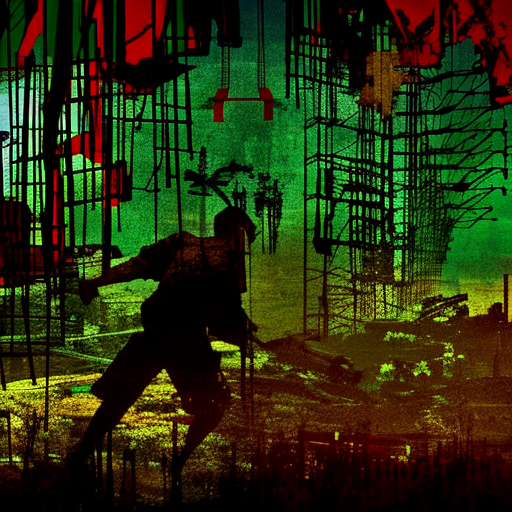One-line summary:
“The Jungle” is a powerful and shocking novel that exposes the harsh realities of the meatpacking industry in early 20th century America through the story of a Lithuanian immigrant family.
The Immigrant Experience
“The Jungle” follows the life of Jurgis Rudkus, a young Lithuanian immigrant who arrives in Chicago with his family in search of the American Dream. They are filled with hope and dreams of a better life, but soon find themselves trapped in a cycle of poverty and exploitation. The novel vividly portrays the struggles faced by immigrants in a new land, from the difficulty of finding work to the discrimination they face from both employers and fellow workers.
Jurgis and his family quickly realize that the reality of their new life is far from what they had imagined. They are forced to live in squalid conditions in a run-down tenement, where they share a single room with several other families. They struggle to find steady employment, often resorting to dangerous and backbreaking work in the meatpacking plants.
The Horrors of the Meatpacking Industry
Upton Sinclair’s novel exposes the horrific conditions and practices in the meatpacking industry during the early 1900s. Through Jurgis’ experiences working in the plants, the reader is confronted with the unsanitary and dangerous conditions in which meat is processed. The workers are subjected to long hours, low wages, and constant physical and emotional abuse.
The novel describes in gruesome detail the process of turning animals into meat products, highlighting the lack of hygiene and the use of contaminated meat. Sinclair’s intent was to shed light on the exploitation of workers, but the public’s response focused more on the unsanitary practices in the industry, leading to significant reforms in food safety regulations.
The Corruption of the American Dream
“The Jungle” also explores the corruption and greed that permeate American society. Jurgis and his family are repeatedly taken advantage of by unscrupulous businessmen and politicians who exploit their vulnerability for personal gain. They are forced to pay exorbitant rents, endure unsafe working conditions, and face constant financial hardships.
As Jurgis becomes more disillusioned with the American Dream, he joins the socialist movement and becomes an advocate for workers’ rights. Sinclair uses Jurgis’ transformation to critique the capitalist system and the inequality it perpetuates. However, Jurgis’ efforts to bring about change are met with resistance and ultimately fail, leaving him broken and defeated.
Key Takeaways:
- The immigrant experience in early 20th century America was filled with hardships, discrimination, and exploitation.
- The meatpacking industry during this time was characterized by unsanitary conditions, low wages, and abusive treatment of workers.
- The American Dream is often corrupted by greed and inequality, leaving many immigrants and workers disillusioned.
“They had dreamed of freedom; of a chance to look about them and learn something; to be decent and clean, to see their child grow up to be strong. And now it was all gone—it would never be!”
In conclusion, “The Jungle” is a powerful and eye-opening novel that exposes the harsh realities faced by immigrants in early 20th century America. Through its vivid portrayal of the immigrant experience, the horrors of the meatpacking industry, and the corruption of the American Dream, Upton Sinclair’s work continues to resonate and serve as a reminder of the importance of social justice and workers’ rights.












